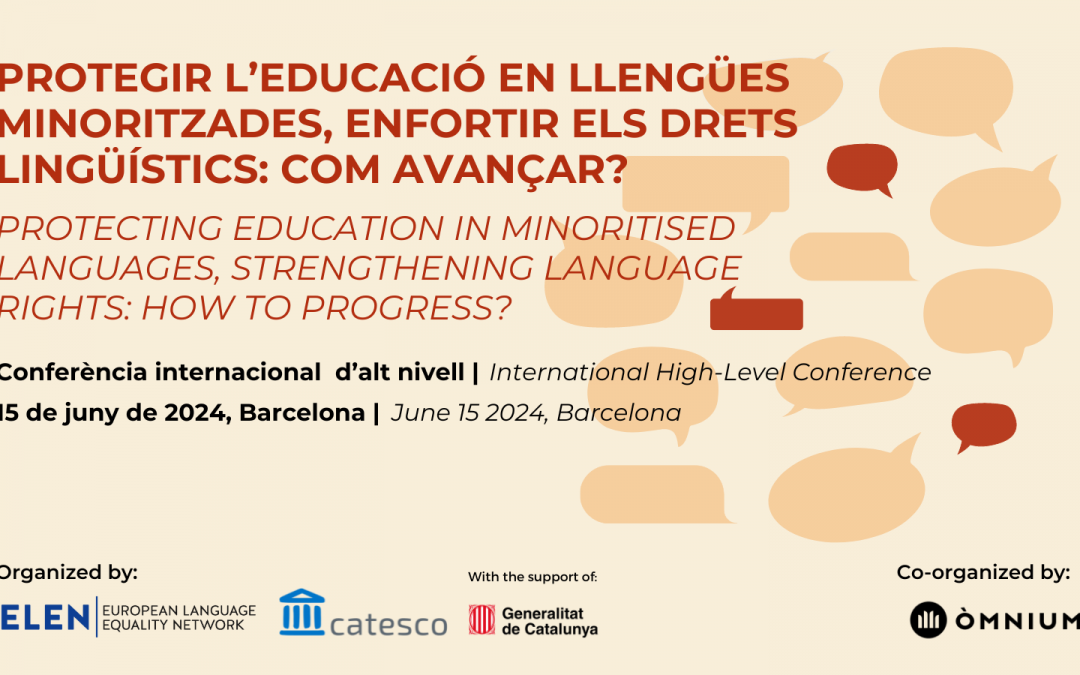The UN Special Rapporteur for Minorities, the Council of Europe, UNESCO, and international experts on language rights will be in Barcelona on June 15th to speak at the ELEN-CATESCO International High Level Conference on protecting education in minoritized languages and strengthening language rights.
Organized by the European Language Equality Network (ELEN) and CATESCO, with the collaboration of Òmnium Cultural, the experts will be joined by language activists from ELEN for the landmark conference that will set the European agenda for minoritized language protection and advocacy work for the next decade.
ELEN member organisations will be in the Catalan capital the day before the conference for the organization’s annual Steering Committee meeting.
Speaking to the media ELEN President, Elin Haf Gruffydd Jones, said: “It’s been three decades since the adoption of European and international treaties to safeguard our languages, yet, despite some progress, we still find that they are legally vulnerable, in particular education in minoritized languages, which is a vital component for effective language recovery.”
ELEN Secretary-General, Davyth Hicks, added: “Considering the current precarious situation across Europe for our languages, and in the context of Catalan-medium education in the Catalan-speaking countries, the conference is particularly timely. It will help ELEN and its member organisations develop and plan their advocacy work for the next decade as well as highlight the overarching need for progressive and inclusive language legislation and policies at the international and state level to ensure that our languages survive into the future.”
CATESCO chairman, Eduard Vallory, said: “In Catalonia, the Catalan school model promotes social cohesion and has contributed decisively to increasing the social use of Catalan in recent decades. The commitment to make the school a key instrument for the normalization of languages that are in a situation of minoritization not only defends the linguistic rights of its speakers but also contributes to the defense and promotion of linguistic diversity in Europe, and therefore to its cultural heritage and its ability to project more inclusive, just and democratic futures.”
Òmnium Cultural stated that: “The Catalan linguistic immersion system in schools, which establishes Catalan as the vehicular language for learning, has been internationally acknowledged for its contribution to the social cohesion of Catalonia, and for providing equal opportunities for all pupils, irrespective of their origin and family language. It has been recognized by different international organizations, such as the EU’s High Level Group on Multilingualism, as well as the European Commission, which points to Catalonia and its educational model as a best practice example of multilingualism management and as an exportable model to other European territories with languages in a similar situation to Catalan.
But despite the success of this model, it is currently under attack by Spanish nationalists who are fighting in court for a segregated school system. That’s why it is more important than ever to protect the linguistic immersion model as a way to guarantee equal rights for all students – in Catalonia, in Spain, and all across Europe, as Omnium Cultural continues to do individually as well as a member of the European Language Equality Network.”

